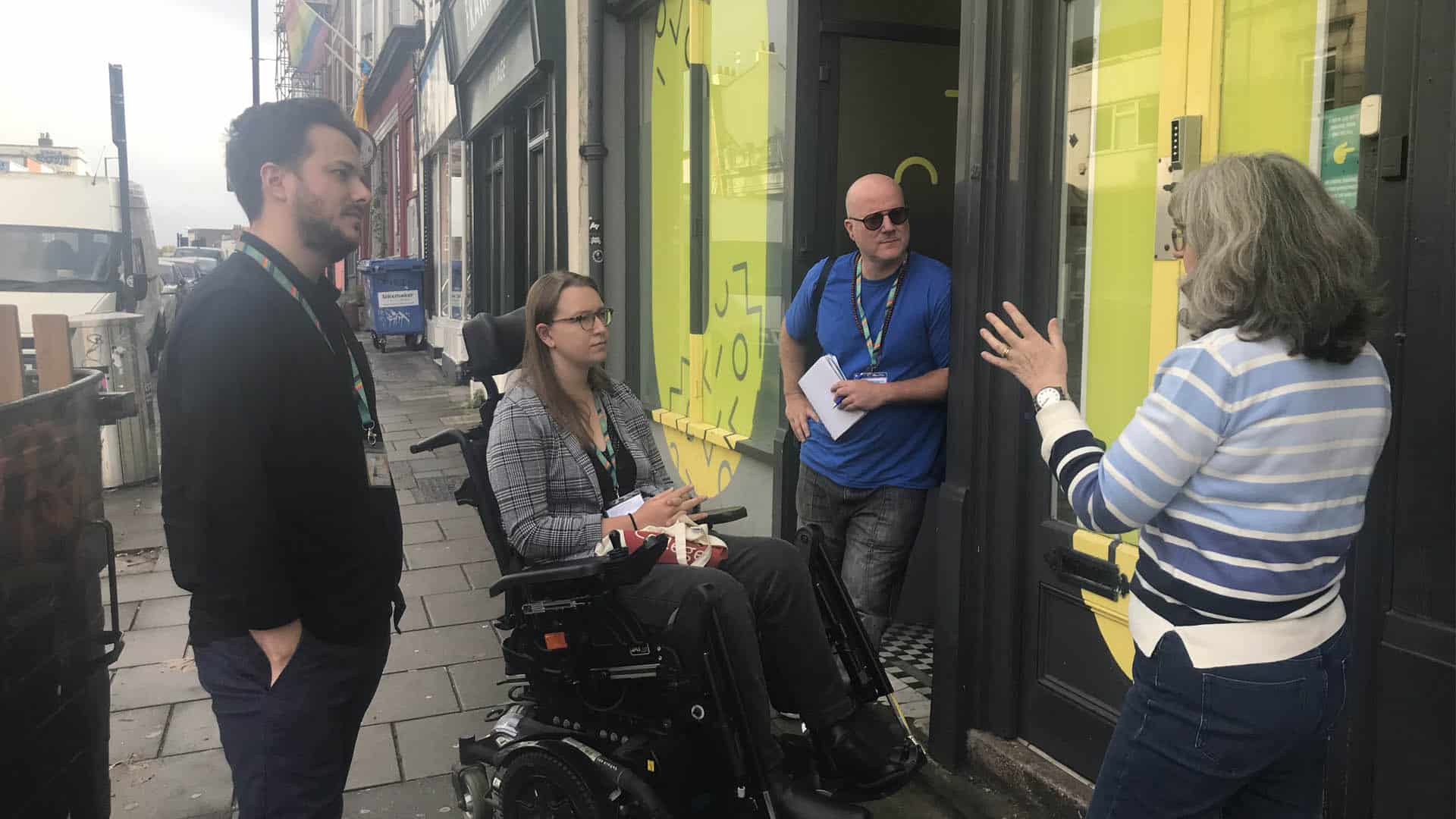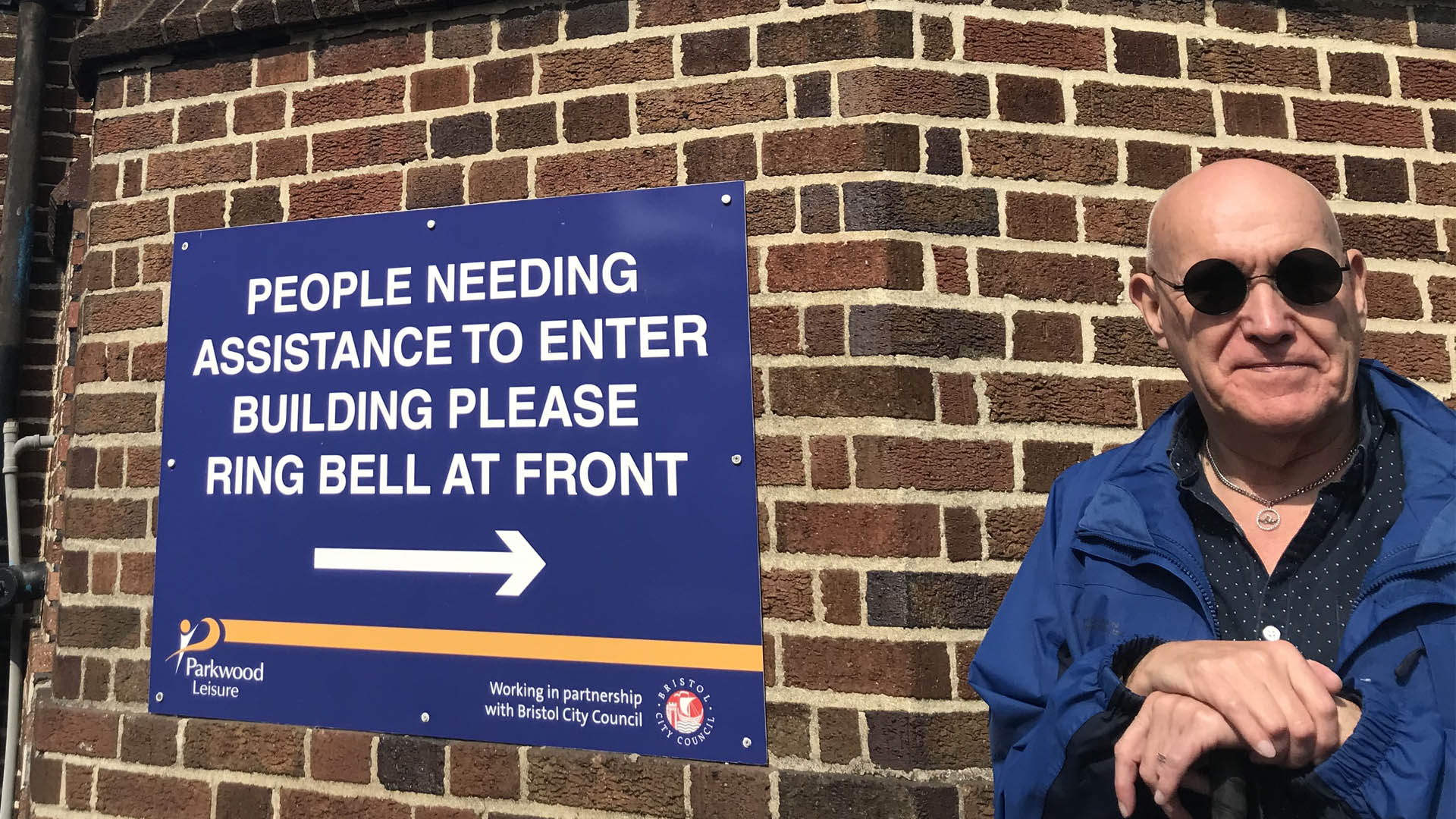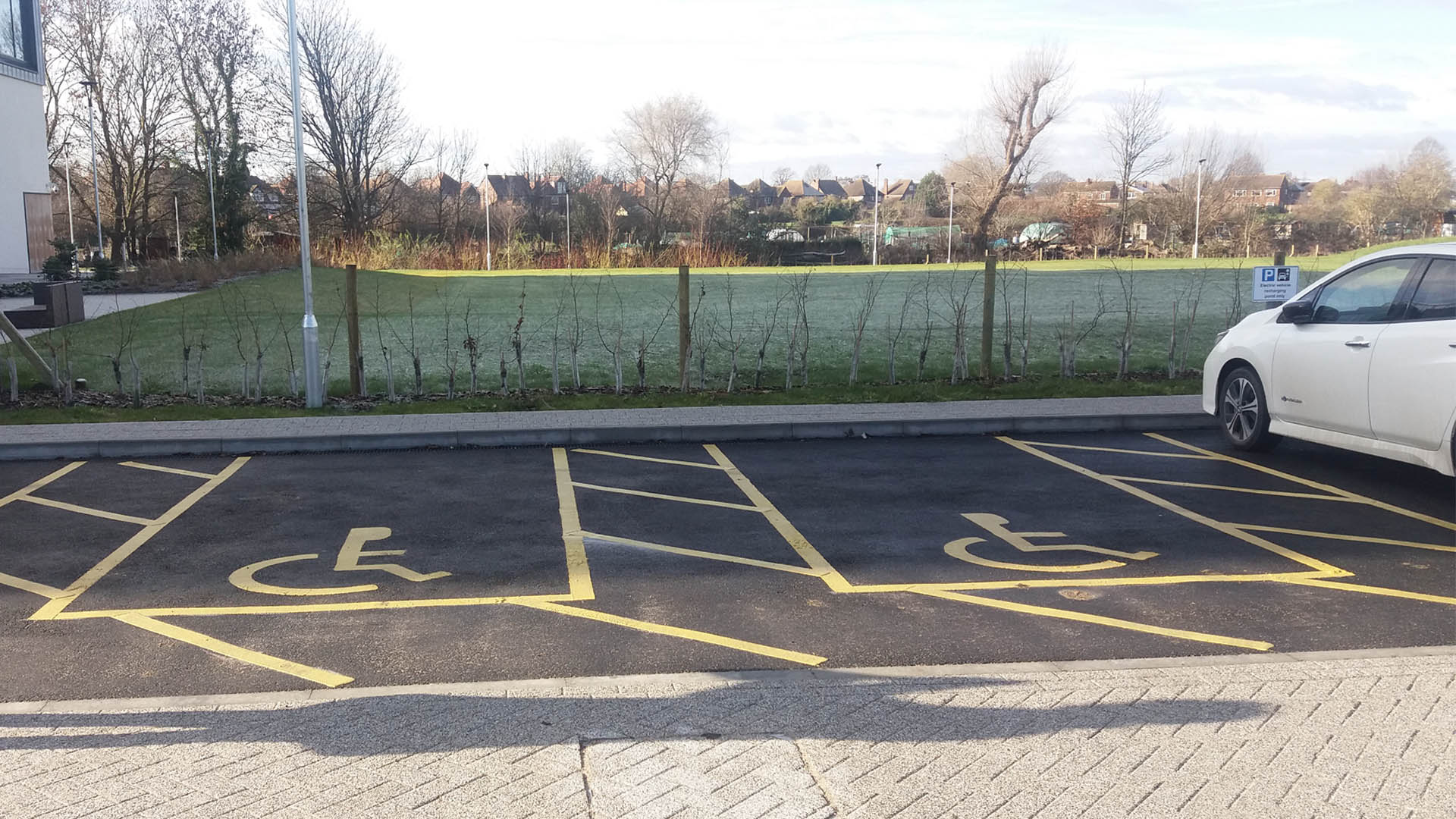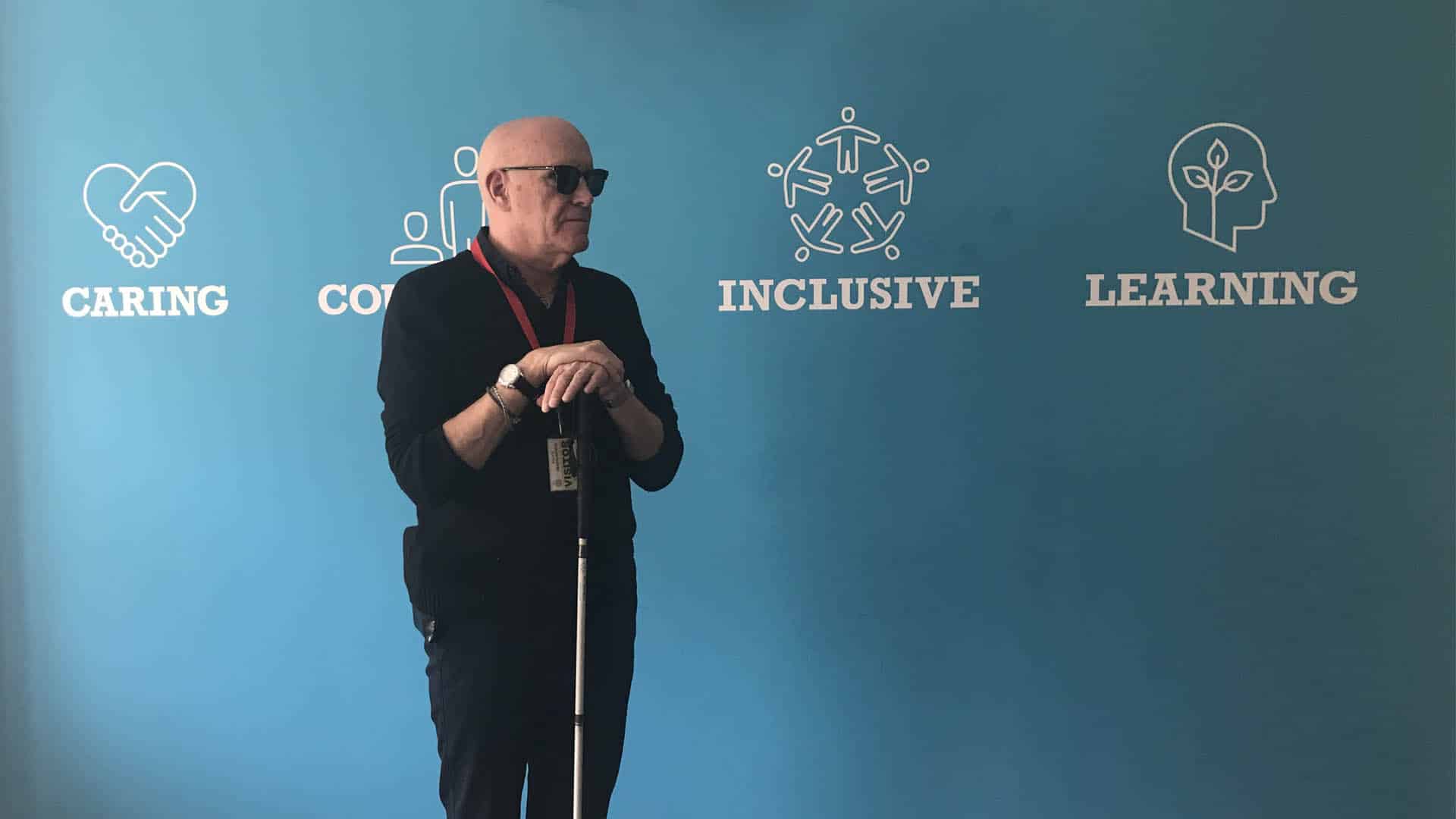News Archive
Check back soon for more blogs and news.
Why should you create an inclusive workplace?
Accessible Somerset – The Importance of Co-Production
Somerset set to Become More Accessible
12 Common Access Mistakes
The Power of Lived Experience
How do I make my business more inclusive and accessible?
Around 1.3 billion people experience significant Disability (World Health Organisation). That’s a huge proportion of the population, fuelling an estimated spending power of £274 billion per year for UK business, according to We Are Purple. But does your business cater adequately for the Disabled community?

By understanding what an inclusive and accessible business looks like and means, and practical steps for how your organisation can become more accessible and inclusive, you will not only be doing the right thing but embracing a whole range of financial and social benefits – including customer retention, satisfaction and recruitment. But, knowing where to start can be confusing.
At WECIL we are here to help you understand how and why your business needs to put accessibility and inclusion at the forefront of your strategy, and for local businesses in the South West, we are partnering with Somerset County Council to deliver ‘Accessible Somerset’, a 12 month programme designed to improve inclusion and accessibility across the region. Read on to find out more about the initiative and the steps you can take that really make a difference.
What is inclusive and accessible?
Being an inclusive business means that everyone has the same opportunity and choice, and that everyone who wants to use your services is able to regardless of age, race, gender, ability etc. Cambridge Dictionary’s official definition for inclusion is ‘the act of including someone or something as part of a group, list, etc., or a person or thing that is included.’ Being inclusive means making sure that everyone feels part of the collective group, equally and individually.
There is also an important difference between inclusion and integration. Just integrating Disabled people is not enough, you need to fully include them. It is like just inviting someone to the party, instead of inviting them to dance. Your services need to not just include Disabled people as a tickbox, but fully and completely make them feel welcomed, empowered and celebrated.
Accessibility is about everyone being able to access everything they need and having the choice to access what is available to them. This means supporting different users in different ways to ensure they have this access. Accessibility goes way beyond physical adjustments such as the dimensions of a door frame or the incline of a ramp, but means removing all barriers that prevent people from engaging with and feeling welcomed into a space. Your venue might be accessible for wheelchair users, but is it welcoming for neurodivergent people? You can’t necessarily be perfect in every way, but considering the needs of everyone will ensure you are as accessible as possible in your venue, services and recruitment.
Whilst being inclusive and accessible are both based around equal choices, there is a difference between the two – being inclusive focuses on the diverse needs of all users and making sure they can all enjoy your services equally. Accessibility is focused on a smaller group of users, those with disabilities, and ensuring that all of this community can access your business. It is important to take both into account, and remember that just because you are taking accessibility measures doesn’t mean you are inclusive by default, and vice versa!

How you can make your business more inclusive
Locally in the Somerset region, we recognised there weren’t many places for organisations to go for guidance and support about accessibility and inclusion. That’s why we have commissioned ‘Accessible Somerset’, a year long project to improve the accessibility of Somerset for all Disabled people. The project will include training sessions, free accessibility audits and self help tools on low cost ways to improve accessibility for businesses, as well as research into the areas of improvement that Disabled people actually want. Participating organisations will increase their knowledge of accessibility, and in turn reap the benefits of becoming a more accessible and inclusive organisation – increasing customer satisfaction, retention, recruitment and loyalty. With 106,514 residents classed as Disabled under the Equality Act and another 45,000 with a long term physical or mental health condition, there really is a significant need for businesses to become more accessible. In fact, businesses including restaurants, supermarkets, transport providers, banks and high street shops lose millions of pounds each month by not being accessible, so start putting some of these tips into practice now.
Business culture – to improve the inclusion and accessibility of your business culture, it is crucial to be open to different ideas, viewpoints and needs. Your mindset needs to be flexible and accommodating, and remember that one size does not fit all. Whether you’re an employee, manager or CEO, voicing your opinion and being open to breaking habits and routines is the first step toward making improvements.
A positive attitude – there is work to be done in terms of an attitude shift toward disability. Making adjustments shouldn’t be seen as a burden or inconvenience, but something that your business is happy and willing to accommodate. We need to be open and listen to individual’s needs to ensure everyone is equally valued.
Recruitment – are your interview practises inclusive and accessible? Do you encourage applications from a diverse range of candidates? If your recruitment processes are limited in this way, you have no hope of having an inclusive and diverse workforce. Be prepared to make adjustments for applicants, and be proactive by offering these before they have to ask. Think about options for hybrid working and accessible workplaces as well as the digital access of your application process. Make sure you use inclusive language in job profiles and role descriptions so as not to exclude people before you have even begun!

Making your business physically accessible
While physical access is not the only thing you should be considering, it remains an important factor. If your business has a physical building like a shop front or restaurant, think about some of these points:
- Parking – do you have accessible parking spaces?
- Are your entrances and exits accessible? This includes level access, ramps, lifts and doors which need to be wide enough or even automatic. Can everyone get around your building independently?
- Consider your lighting and background music, particularly for neurodivergent users.
- Ensure your signage is accessible with good colour contrast
- Make sure any information is displayed clearly and is readily available
- Ensure you have accessible bathrooms
Take some time to reflect on these areas, or get in touch with us for access audits of your physical space. Remember that more than one in five of us will be affected by disability at some point in our lives, so don’t underestimate the power and importance of making your business accessible. For more tips about physical accessibility read our 12 Common Access Mistakes blog for more guidance on what (and what not!) to do.

Summary
It is imperative that businesses take steps now for the future. In the Somerset region particularly, we are helping organisations like yours become more accessible and inclusive for everyone in the county. To discuss how your business can get involved, please register your interest for the webinars by getting in touch. Or, if you’re a Disabled person in Somerset, we would love to hear your experience of business services in the area to help us identify areas for improvement and influence real life change together.


